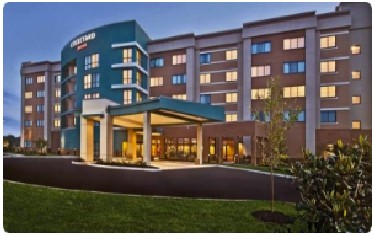Written by Dwight Bostic:
December’s Mission Monthly keynote article – ‘Importance of Due Diligence for Secondary Market Asset Sales’: reviewed the robust capabilities of the Secondary Market Surveillance (“SMS”) platform in providing permission-based portal access for all stakeholders in the loan evaluation process, streamlining due diligence by serving as a single repository for data management.
However, as with most technology based solutions/ platforms, the human element is critical to the success. Systems, in a singular capacity, are insufficient to address the tactical requirements of a successful engagement.To expand our capabilities, Mission Capital, in the 4th quarter of 2015, combined our services business with the due diligence firm Global Financial Review. The new entity, Mission Global, provides a comprehensive portfolio of due diligence and risk management services for institutions buying, selling, securitizing or managing mortgage, consumer and commercial loans. Mission Capital and Mission Global align human capital (with over 300 fulltime professionals) and advanced technology with a secondary market approach to meet your specific and demanding requirements.
Mission Capital and Mission Global support a broad range of business processes: Loan Syndication, Portfolio Acquisition and Disposition, Securitization, Warehouse Lending, Asset and Portfolio Management and Surveillance, Mergers and Acquisitions and Regulatory Reviews. This depth of experience along with the breadth of services offered allows Mission to deliver solutions to 7 of the top 10 banks along with engagements with the FDIC, various FHLBs and GSEs as well as numerous whole loan investors.
The following engagements demonstrate our extensive portfolio of services:
Top Five Major Global Bank: Mission is engaged by the Bank for both residential and commercial due diligence services. In support of the Bank’s multiyear, programmatic asset liquidation strategy for their residential portfolio, Mission acts as the Bank’s back office for all components of transaction management. Mission successfully imbedded over 100 full time professionals within the bank’s servicing operation conducting collateral file review and curative, vault management, title and lien curative along with managing post-closing contract management. In support of the Bank’s commercial group, Mission delivered due diligence and credit underwriting services for the acquisition of a credit facility secured by approximately $3bn of loans secured by more than 650 properties in Mexico. Due diligence included review of loan and credit files as well as third party work ordered in conjunction with the acquisition. Our deliverables, including market summaries for major cities and collateral types and individual asset summaries for all relationships, loans and collateral, were utilized by the Bank’s credit team in underwriting and approving the transaction.
Top Five US Bank: Engagement A supports the Bank’s warehouse lending group’s counterparty risk management through i) conducting loan level re-underwriting and compliance testing and ii) auditing servicing procedures for adherence to Bank and regulatory standards. Engagement B supports the capital markets programmatic RMBS Cleanup Calls and resulting whole loan liquidation. Services delivered are collateral exceptions curative along with preparation of a new assignment of mortgage from Bank. The transaction timeline is generally very compressed which require Mission to cure 1,500 to 3,000 executions within three to four weeks.
Leading Private Equity Firm: Mission supports the PE’s, one of the most active buyers of distressed residential whole loans over the past several years, whole loan acquisition and sales group delivering products for title and lien curative, compliance documentation cure and collateral documentation risk grading. Mission established a separate team of professionals dedicated to the specific and demanding needs of our client. Loan Originators – multiple asset classes: In support of new origination loan acquisitions by Conduit Originators, Mission performs loan level re-underwriting and applicable compliance testing for the following asset classes: Commercial Loans; Student Loans; QM and NonQM Residential Loans; and Community Reinvestment Act Loans. Mission Global and Mission Capital are uniquely positioned to partner with you on a variety of services to meet the complex challenges faced by all market participants. Mission Global is Rating Agency approved by S&P, Fitch, DBRS, and Kroll and both Mission Capital and Mission Global meet the demanding standards for vendor approval.
Click here to learn more about Mission Capital’s loan due diligence and consulting services.



